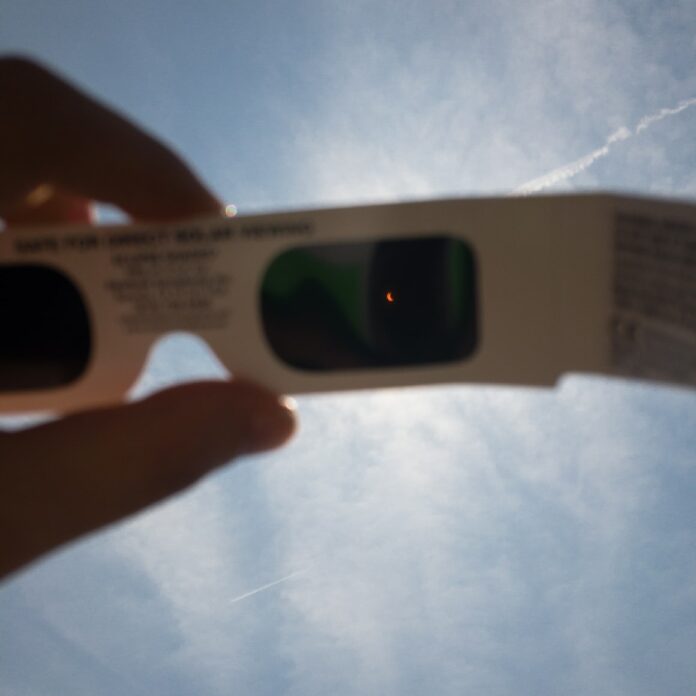A message has been circulating on social media today, warning people against looking at the sun through the smoky haze.
These warning messages say that looking at the sun carries with it the same dangers as looking at our planet’s star during a solar eclipse, during which you should only look at the sun while wearing special protective glasses.
So, is it true? Should you really not be looking at the sun when it’s hazy? No, it’s not true, and it’s a ridiculous theory to begin with.
Looking at the sun during a solar eclipse is dangerous because it can cause severe damage to your eyes, including permanent blindness. Here’s why:
- Intense Sunlight: During a solar eclipse, the moon moves between the Earth and the sun, partially or completely blocking the sun’s rays. However, even during a partial eclipse, the sun is still partly visible. The sunlight during an eclipse is just as strong as during a regular day, and it can be tempting to look at it without the natural reflexes that protect your eyes from the sun’s brightness.
- Harmful Ultraviolet and Infrared Radiation: The sun emits harmful ultraviolet (UV) and infrared (IR) radiation, which are not visible to the naked eye. When you look directly at the sun, even for a short period, these types of radiation can damage the sensitive tissues of your eyes. They can cause inflammation of the cornea (front surface of the eye) and the retina (back surface of the eye), leading to temporary or permanent vision problems.
- Retinal Damage: The most significant risk associated with looking at the sun during an eclipse is solar retinopathy. This occurs when the intense solar radiation damages the cells of the retina, a light-sensitive tissue at the back of your eye responsible for vision. The damage caused by solar retinopathy is often irreversible and can result in a permanent loss of vision, distorted vision, or blind spots.
- Lack of Pain Sensation: The danger lies in the fact that staring at the sun during an eclipse does not cause immediate pain, so you may not realize the damage occurring to your eyes until it’s too late. Unlike other parts of your body, your eyes do not have pain receptors to warn you of potential harm.
Glasses with specialized filters can block out the harmful UV and IR radiation, allowing you to view the eclipse without risking eye damage.
However, you may notice that none of these reasons for not staring at a solar eclipse is shared by what we are seeing now: smoke filling the skies.
Do you have to wear special glasses to look at the sun today? You can, if you really want, but you absolutely don’t to.


Why don’t the reasons apply? This post makes no sense.